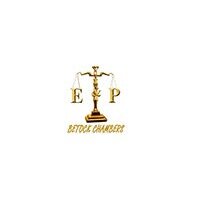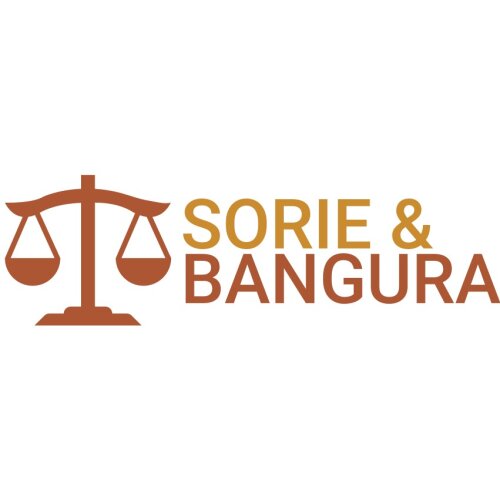Best Energy Regulatory Law Lawyers in Freetown
Share your needs with us, get contacted by law firms.
Free. Takes 2 min.
List of the best lawyers in Freetown, Sierra Leone
About Energy Regulatory Law in Freetown, Sierra Leone
Energy Regulatory Law in Freetown, Sierra Leone, refers to the legal framework that governs the production, distribution, consumption, and regulation of energy resources within the city and the country. The primary focus is on electricity, renewable energy sources, and petroleum products. The law is designed to ensure fair access, promote sustainable energy development, establish standards for health, safety, and environmental protection, as well as create a balanced relationship among government agencies, private operators, and consumers. Regulatory oversight in the energy sector is critical for driving economic growth, improving living standards, and ensuring energy security for all residents of Freetown.
Why You May Need a Lawyer
Navigating the landscape of Energy Regulatory Law in Freetown can be complicated. People and businesses may require legal assistance in various situations, such as:
- Securing licenses and permits for energy projects
- Understanding regulatory compliance for electricity generation, distribution, or import-export activities
- Addressing disputes with energy providers or government agencies
- Negotiating power purchase or supply agreements
- Ensuring compliance with environmental regulations and standards
- Participating in tenders and bidding for energy infrastructure projects
- Advising on renewable energy investments and incentives
- Managing liability and insurance requirements in the energy sector
A lawyer specializing in Energy Regulatory Law can help individuals and businesses understand their rights and obligations, avoid costly legal pitfalls, and ensure compliance with all relevant regulations.
Local Laws Overview
The legal framework for energy regulation in Freetown is governed by several key statutes and government agencies:
- Electricity Act, 2011: Establishes the liberalization of Sierra Leone’s electricity market, the Sierra Leone Electricity and Water Regulatory Commission (SLEWRC), and outlines the rules for licensing, tariffs, and dispute resolution.
- Petroleum (Exploration and Production) Act, 2011: Regulates the exploration, production, and sale of petroleum and natural gas and sets rules for licensing and environmental protection.
- National Energy Policy and Strategy: Provides the government’s vision for energy access, including renewable energy promotion, rural electrification, and private sector participation.
- Sierra Leone Electricity and Water Regulatory Commission (SLEWRC): The main regulatory authority responsible for setting tariffs, issuing licenses, and ensuring service standards in Freetown.
- Environmental Protection Agency Act: Outlines the environmental assessment and compliance requirements for energy projects to protect public health and the environment.
These laws and agencies play an essential role in shaping how energy is managed, delivered, and regulated within Freetown, aiming to protect consumers while encouraging efficient and sustainable energy development.
Frequently Asked Questions
What is the role of the Sierra Leone Electricity and Water Regulatory Commission?
The Sierra Leone Electricity and Water Regulatory Commission (SLEWRC) is a national body that regulates tariffs, approves licenses, monitors service delivery, resolves disputes, and ensures fair practices across the energy sector in Freetown and throughout Sierra Leone.
Do I need a license to generate electricity for my business?
Yes, businesses and individuals intending to generate, distribute, or sell electricity must obtain the appropriate license from the SLEWRC. This applies to both conventional and renewable energy generation.
How are energy tariffs set in Freetown?
Energy tariffs are set and regulated by SLEWRC to ensure that pricing remains fair, transparent, and based on the actual costs of generation, transmission, and distribution, while also considering consumer protection.
Can foreign companies invest in Sierra Leone’s energy sector?
Foreign investment is encouraged in the energy sector, subject to compliance with local laws, environmental approvals, and licensing requirements. Legal advice is recommended to navigate investment procedures.
What legal protections exist for consumers in the energy sector?
Consumers are protected under the Electricity Act and regulations issued by SLEWRC, which provide mechanisms for dispute resolution, quality standards, transparency in billing, and safe access to energy services.
What are the environmental requirements for energy projects?
Energy projects must comply with the Environmental Protection Agency Act, including conducting Environmental Impact Assessments and obtaining approvals before construction or operation.
How are disputes between energy providers and consumers resolved?
SLEWRC provides a formal dispute resolution mechanism. Parties can file complaints, and the Commission will mediate or adjudicate as necessary to resolve the issue according to established procedures.
Are there incentives for renewable energy projects?
The National Energy Policy and government initiatives often provide incentives such as tax breaks, grants, or technical support to encourage renewable energy investments, but eligibility and availability may vary over time.
What should I do if I suspect unfair energy billing?
Consumers should first contact the service provider for clarification. If unresolved, the complaint can be escalated to SLEWRC, which will investigate and order remedies if unfair practices are found.
Is a lawyer necessary for all energy-related matters?
While not all matters require a lawyer, legal assistance is highly recommended for licensing, compliance, contracts, and any situation where rights or financial interests may be at risk.
Additional Resources
- Sierra Leone Electricity and Water Regulatory Commission (SLEWRC): The primary body for licensing and regulation in the energy sector.
- Ministry of Energy: Oversees policies and strategies for energy development in Freetown and nationwide.
- Environmental Protection Agency (EPA): Handles environmental compliance and assessments for energy projects.
- Sierra Leone Law Reform Commission: Provides access to legislation and legal updates.
- Legal Aid Board Sierra Leone: Offers legal support and advice for individuals with limited means.
Next Steps
If you need legal assistance in Energy Regulatory Law in Freetown, start by gathering all relevant documents concerning your energy issue, including contracts, correspondence, and regulatory notifications. Identify your specific legal concerns and whether they involve licensing, compliance, a dispute, or investment. Then, consult a qualified lawyer specializing in energy law. You may also reach out to the SLEWRC or the relevant government body for initial information or clarification. It is always advisable to seek legal counsel early to ensure your rights and interests are adequately protected throughout your case or project.
Lawzana helps you find the best lawyers and law firms in Freetown through a curated and pre-screened list of qualified legal professionals. Our platform offers rankings and detailed profiles of attorneys and law firms, allowing you to compare based on practice areas, including Energy Regulatory Law, experience, and client feedback.
Each profile includes a description of the firm's areas of practice, client reviews, team members and partners, year of establishment, spoken languages, office locations, contact information, social media presence, and any published articles or resources. Most firms on our platform speak English and are experienced in both local and international legal matters.
Get a quote from top-rated law firms in Freetown, Sierra Leone — quickly, securely, and without unnecessary hassle.
Disclaimer:
The information provided on this page is for general informational purposes only and does not constitute legal advice. While we strive to ensure the accuracy and relevance of the content, legal information may change over time, and interpretations of the law can vary. You should always consult with a qualified legal professional for advice specific to your situation.
We disclaim all liability for actions taken or not taken based on the content of this page. If you believe any information is incorrect or outdated, please contact us, and we will review and update it where appropriate.












